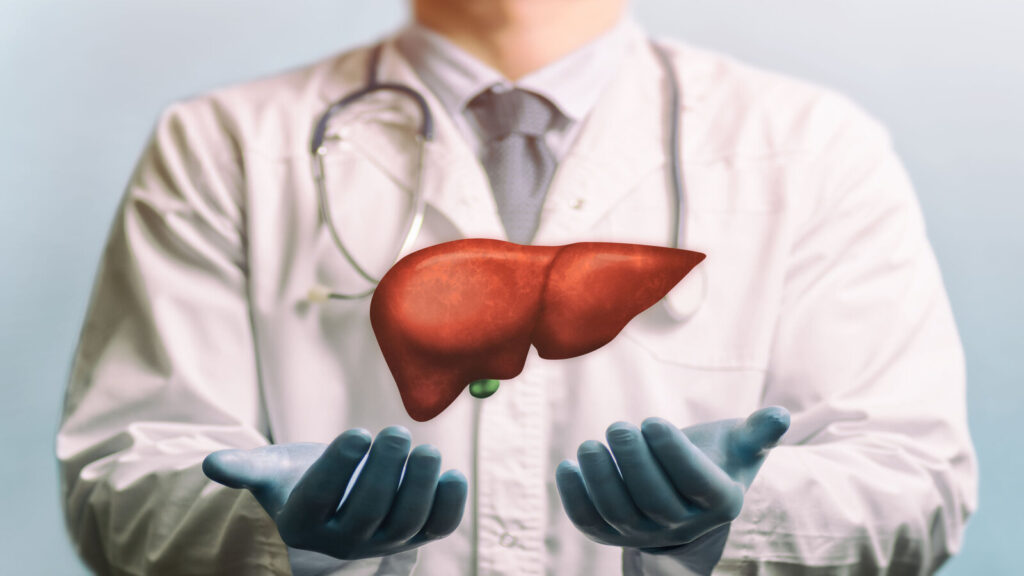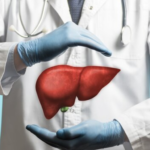
It can be difficult and stressful to live with liver cirrhosis. The disease is characterized by liver tissue scarring, which leads to a progressive loss of liver function. Numerous symptoms, including fatigue, jaundice, abdominal swelling and cognitive decline, may result from this. A comprehensive strategy that includes symptom management, lifestyle modifications and support from family and friends is necessary for coping with liver cirrhosis.
Managing symptoms is an essential part of living with liver cirrhosis. One of the most typical symptoms of liver cirrhosis is fatigue. Make sure to prioritize sleep and get enough rest if you want to manage your fatigue. To save energy, you might also need to change your work schedule or take numerous breaks during the day. Keeping hydrated and eating a healthy diet can help you manage your fatigue.
Another typical sign of liver cirrhosis is jaundice. The skin and eyes start to become yellow in this condition. It’s important to avoid alcohol and consume a minimal amount of meals high in fat if you want to control your jaundice. Additionally, you might need to take medication to treat your symptoms. It is crucial to discuss your symptoms and any drugs you are taking with your healthcare professional.
Ascites, a typical sign of liver cirrhosis, cause abdominal swelling. An accumulation of fluid in the abdomen is the cause of this. Keep hydrated and cut back on your salt intake to manage ascites. Additionally, your doctor might recommend medication to help with fluid buildup. To remove the extra fluid in extreme situations, a treatment called paracentesis may be required.
Another symptom that people with liver cirrhosis may suffer is cognitive impairment. Confusion, memory loss, and trouble concentrating are some symptoms. To manage cognitive impairment, it’s critical to keep organized and follow a schedule. To handle your everyday duties, you might also need to ask a loved one or carer for assistance.
Making lifestyle modifications can also assist people to manage liver cirrhosis symptoms in addition to symptom management. Alcohol should be avoided since it might worsen liver damage. Additionally, smoking should be avoided because it raises the risk of liver cancer. Keeping up a nutritious diet and exercising regularly can also help control symptoms and enhance general health.
Living with liver cirrhosis also requires asking for help from family members and friends. Your healthcare practitioner may tell you about the disease, assist with symptom management and if required, refer you to experts. It is crucial to have a solid network of relatives and friends who can provide moral support and assistance with day-to-day activities.
There are tools and support groups available for those living with liver cirrhosis in addition to asking for help from loved ones. A nonprofit organization called the American Liver Foundation offers information and assistance to people with liver illness. They provide those who require assistance with services including support groups, instructional materials and a helpline.
There are a number of coping mechanisms that can assist people with liver cirrhosis manage their illness in addition to medical care and lifestyle modifications. These tactics consist of:
- The best way to better understand and control symptoms of liver cirrhosis is to educate yourself on the illness, its origins, symptoms and available treatments. Your medical professional can enlighten you about liver cirrhosis and point you in the direction of other helpful services like support groups and educational materials.
- Manage your stress: Having liver cirrhosis can be stressful, which can make symptoms worse. Utilizing stress-reduction methods like yoga, deep breathing exercises and meditation can help lower stress and enhance general well-being.
- Keep in Touch: Keeping in touch with family and friends can offer emotional support and make people feel less alone. It’s critical to be upfront with others about your illness and to request assistance when required.
- Keep a Positive Attitude: Keeping a positive attitude can help people manage the difficulties of living with liver cirrhosis. This may entail putting your attention on the pursuit of activities that make you happy and meaningful, such as volunteering or spending time with loved ones.
- Seek Professional Support: Having liver cirrhosis can occasionally necessitate receiving professional assistance such as counseling or therapy. Individuals may benefit from having a secure and encouraging setting in which to express their emotions and worries.
Although managing liver cirrhosis and enhancing the quality of life can be difficult, it is possible with the right techniques and assistance. Despite their condition, people can lead fulfilling lives by managing their symptoms in a comprehensive way, changing their lifestyle and getting support from family and friends.
It’s critical to keep in mind that every individual with liver cirrhosis has a different experience, and what works for one person might not work for another. Working together with your healthcare practitioner will help you create a treatment strategy that is tailored to your unique requirements and objectives. People with liver cirrhosis can live happy lives and retain their health and well-being with the correct approaches and support.
In conclusion, living with liver cirrhosis can be challenging and stressful, but there are effective strategies to manage symptoms and enhance the quality of life. These include symptom management, lifestyle modifications, seeking support from family and friends and utilizing coping mechanisms such as stress reduction, keeping in touch and seeking professional support. It is important to work closely with healthcare practitioners to develop a personalized treatment plan that addresses individual needs and objectives. With the right approaches and support, people with liver cirrhosis can lead fulfilling lives and maintain their health and well-being. Dr. Prasad Bhate is a gastroenterologist and hepatologist who specializes in liver diseases and provides valuable medical guidance and support for individuals with liver cirrhosis.




